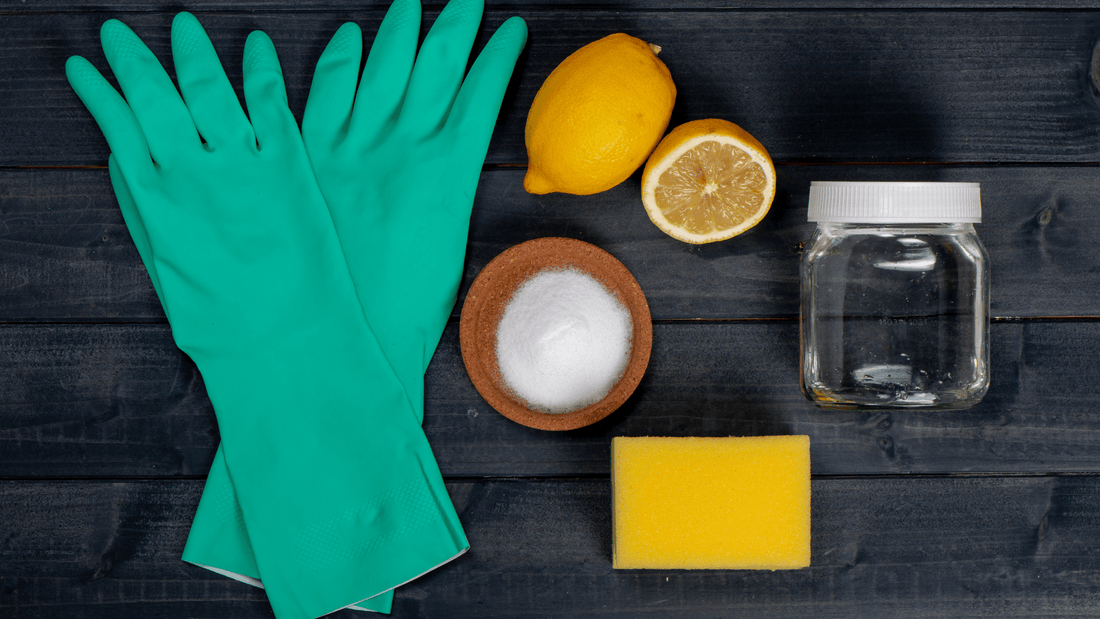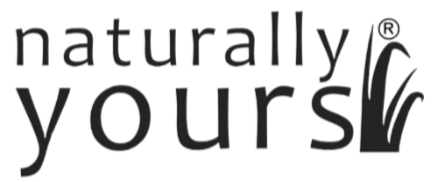
10 Effective DIY Natural Cleaners and Disinfectants that you can easily make at home
Naturally YoursShare

When it comes to home cleaning, we want the results to be meticulous and flawless. Most of us have a ritualistic approach to keeping our homes spick and span.
We don’t have any second thoughts in buying every new cleaning or disinfecting product that claims a better performance than the rest.
That is why our storage cabinets hold at least 10 products for different cleaning and disinfecting purposes!
What if we can easily make effective cleaning and disinfecting agents at home, using readily available and natural ingredients, that too for a fraction of the cost of store brought items?
It just takes a little bit time, effort and basic understanding of ingredients.
Here we give you, 10 ideas for making your own cleaning products like detergent, dishwash liquid, floor cleaning lotions, counter top cleaners, stain and grease removers, mold repellent and disinfectant sprays.
All the ingredients used in these recipes can be easily found in the kitchen cabinets or bought from your local pharmacy or online stores.
1. Liquid Detergent

- Boil 2 fistfuls (about 20) of soap nuts in 1 litre water.
- Simmer it for another 30-40 minutes until the water has reduced to half.
- Keep the mixture overnight in the same vessel.
- Squeeze and strain the concoction using a muslin cloth and transfer the liquid into a bottle.
- This liquid, when kept at room temperature, will stay fresh for over a week.
- It can be used in the same way as commercial detergents in the washing machine.
- You can add a few drops of essentials oils like tea-tree oil, eucalyptus oil or peppermint oil for a bit of fragrance and also for a mild disinfectant action.
Soap nuts or reetha are 100% natural and a powerful alternative to chemical surfactants. The left-over soap nuts can be used again to make milder liquid soap for other purposes.
2. Detergent Powder

- Take 1.5 cup of rock salt in a glass container and add 8-10 drops of any essential oil (lemon, lemongrass, peppermint, tea tree, eucalyptus etc.).
- Stir and keep the mixture for 15-20 minutes for drying.
- Add 1 cup of baking soda and grate a bar of pure castile soap into the mixture.
- Shake the mixture well and store it in an air tight container.
- Use 3-4 tbsp. for washing your regular laundry load.
Castile soaps are non-toxic and bio-degradable soap mixtures made using plant, nut or vegetable oils and lye (hence they are completely vegan). They are easily available in online stores both as soap bars and liquid soaps.
3. Dishwash Liquid

- Boil 5 deseeded lemons or used lemon peels in a litre of water.
- Add 20 soap nuts into the boiling lemon water.
- After the mixture is cooled, remove the lemon and soap nut from water and grind it in mixer (discard soap nut seeds before adding to blender).
- Mix ¼ cup sea salt, ¼ cup white vinegar and the ground pulp with the boiled lemon and soap nut water.
- Heat the solution again on low flame. Keep stirring till the salt completely dissolves.
- Sieve the cooled liquid and transfer it to a bottle.
- This is a very effective solution for washing dishes without any side effects of chemical variants.
- The lemon and soap nut essence cut through tough grease and stains and also removes odors from the vessels.
Tamarind is another natural cleaning agent for metals. My grand mother used to clean the brass and copper vessels and figurines using soaked tamarind. I still remember how sparkly they looked after cleaning with tamarind.
4. Floor cleaner (soap-less)

- Take half litre of water in a bottle and put one small piece of alum (fitkiri) into it.
- Add one tbsp. of sea salt and 15 camphor balls in to the water.
- Keep it overnight. Your floor cleaner is ready to use next day.
- It is not necessary for alum and camphor to completely dissolve in the water before use.
- Just make sure to shake the solution each time you use it.
- Dilute the solution in half a bucket of water for good results.
Salt brightens wooden floor. If you feel that the floor is sticky after using the cleaner, reduce the quantity of salt or dilute the solution further.
5. Scented floor cleaner

- Add 1 ½ tbsp. of liquid castile soap into 1 litre of hot water along with 6 drops of pine oil or eucalyptus essential oil.
- Also add 4 drops of neem oil.
- Mix well and store in bottle.
- This cleaner doesn’t need to be diluted and can be used directly on the floor surfaces.
6. Kitchen Cleaning Paste

- Make a paste of 2 tsps. of baking soda with enough lemon juice.
- You can use this paste to clean greasy stove tops, stained coffee cups, dirty floor and wall tiles and corners or practically any surface to get a squeaky clean kitchen.
- But avoid using lemon juice for cleaning marble or granite counters, for citric acid in lemon may corrode the surface.
- Instead use water to make the paste while cleaning marble and granite.
Vinegar is another potent substance that should not be used for cleaning stone counters because of its high acidic content.
7. All-purpose cleaning liquid

- Soak a few lemon or citrus peel in white vinegar or apple cider vinegar.
- After 2 weeks transfer the liquid into a spray bottle and it can be used as an all-purpose cleaner.
- Acidic content in the vinegar can cut through grease and grime.
- This spray is especially useful in cleaning cigarette smoke soot and sticky residue from wooden furniture.
- But avoid using this solution on clothes.
8. Natural Surface disinfectant

- Boil 3-4 handful of washed neem leaves in a litre of water for about 10 minutes.
- Cool and strain the water and add ¼ cup of white vinegar along with a few drops of tea-tree essential oil (you can also use lemongrass essential oil or eucalyptus essential oil) and few blocks of camphor into the mixture.
- Combine the ingredients thoroughly by stirring.
- Pour the solution into a spray bottle and use for disinfecting surfaces.
It is better to add tea tree essential oil while making the solution because it has both anti-fungal and anti-viral properties.
9. Alcohol- based surface disinfectants and Hydrogen peroxide

One hygiene lesson that we all learned in the gone year is that disinfecting is as important as cleaning.
While cleaning merely removes the germs, disinfecting eliminates them completely.
With the emergence of several risky pathogens, it has become necessary to routinely disinfect our homes.
a) Alcohol is a very effective substance for killing viruses and bacteria. The more the percentage of ethanol present in the solution, the more effective it is in destroying the germs.
Rubbing alcohol or surgical spirit, which has an alcohol content of 70% and above is very effective in cleaning surfaces.
Vodka is another alcoholic beverage (40% alcohol) that is an effective disinfectant as well as a cleaner for marble and granite kitchen surfaces, mirrors and glasses.
b) Hydrogen peroxide is technically water with an extra oxygen atom(H2O2). Pun aside, it is an inexpensive and powerful disinfectant.
A 3% concentration is enough for cleaning inanimate surfaces. Hydrogen peroxide is very useful in removing stains on upholstery and bedding.
Just spray a few drops of the liquid on the stains and scrub it with a small brush.
Do you know that hydrogen peroxide can clean and disinfect your cleaning brushes and scrubbers?
From your tooth brushes to loofahs and from cleaning sponges to toilet brushes , all of them can be cleaned and disinfected by soaking in hydrogen peroxide.
10. Mold cleaner and repellent

Clove has anti-fungal and antiseptic properties and can be used for cleaning moldy surfaces.
- Dilute ½ tsp. of clove oil or boil 100 gms of clove in 100 grams of water to make a decoction.
- Strain and transfer to a spray bottle.
- Spritz the solution liberally on the surface to be cleaned and let it sit of an hour.
- Wipe the mold growth using a cloth or wipe and scrub the stubborn spots using a brush.
- Use the solution frequently in places of mold growth to prevent further occurrences.
A Word of Caution
While it is fun and exciting to make one’s own ‘brand’ of cleaning products, we need to exercise extra caution when using some of these ingredients at home.
It is advisable to use rubber gloves while handling ingredients such as hydrogen peroxide and surgical spirits.
Extra care needs to be taken to store the ingredients as well as finished products and to keep them out of reach of children and pets.
Also, never mix the following ingredients:
- Hydrogen peroxide + Vinegar-Makes Peracetic acid, which may cause irritation to skin and eye. It will also damage the surfaces due to its corrosive action.
- Baking soda + Vinegar-This combination tricks one to believing that it actually works, because of the bubbling or fizzy reaction while mixing the two, but it actually does not have any cleaning action. It only turns to salt, water and carbon dioxide.
- Castile soap + Vinegar-The resulting reaction will break down the soap and leave only gunk, killing the surfactant ability of the soap.
